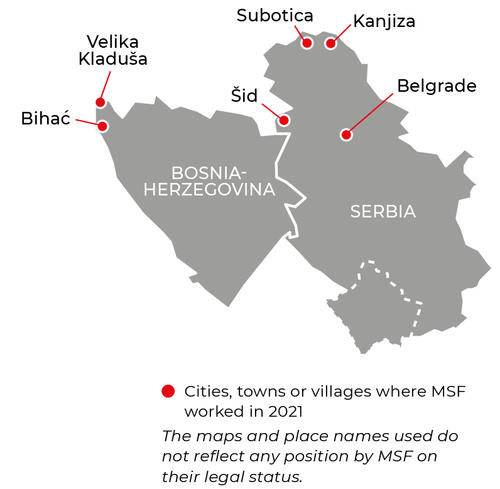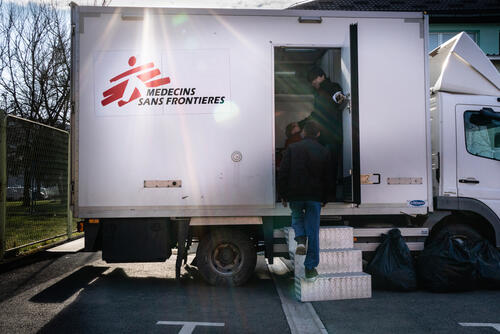Between 2018-2021, the country saw the arrival of more than 75,000 migrants and refugees, mainly from countries such as Pakistan, Afghanistan, Syria, Iraq and beyond. They were often fleeing conflict and poverty in their countries and were in search of safety.
People have found themselves cut off from healthcare and basic services in Bosnia-Herzegovina, trapped between border areas and often become victims of illegal pushbacks. They are often brutalised not only by state authorities and smugglers but also by the living conditions they find themselves in. Between 2018-2021, our teams provided first aid and medical care through a mobile unit along the Bosnian borders.
Our activities in 2021 in the Balkans
Data and information from the International Activity Report 2021; staff and expenditure figures, and description and data on activities cover both Bosnia-Herzegovina and Serbia.
13
13
€0.5 M
0.5M
1991
1991


3,140
3,14
450
45
120
12

Draw the right conclusions from Srebrenica

MSF says civilian control of refugee resettlement in Kosovo is crucial

MSF works to support increasing refugee numbers




